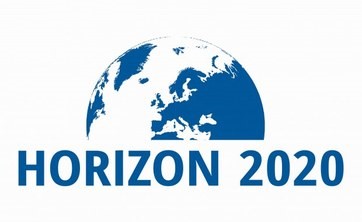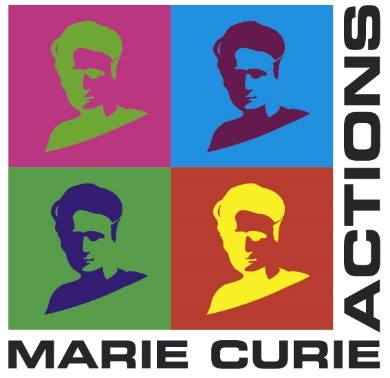In July 2018, European Commission, in the frame of the H2020-MSCA-RISE-2018 (Marie Skłodowska-Curie Research and Innovation Staff Exchange) call, awarded € 1 099 400,00 for project "iP-OSTEO - Induced pluripotent stem cell seeded active osteochondral nanofibrous scaffolds". The project is coordinated by Eva Filova PhD, the Head of the Department of Tissue Engineering, Institute of Experimental Medicine of the Czech Academy of Sciences; expert in regeneration of osteochondral defects based on hydrogels and nanofibres. IPPT PAN will be represented by Tomasz Kowalczyk PhD from the Laboratory of Polymers and Biomaterials (SPPB) expert in electrospinning for medical applications. The project will last for 4 years from Autumn 2018.
iP-OSTEO project focuses on development of novel cell-based scaffolds for bone and cartilage repair in patients with poor regenerative capacity. The system will deliver novel treatment for older patients, for which the current cellular and cell-free methods are ineffective. iP-OSTEO will reach its goals by creating an international and interdisciplinary training program conducted by 7 companies (SMEs) and 7 academic institutions across European Union. The activities will involve networking, research/training, workshop and dissemination secondments.
Academic beneficiaries:
1. Institute of Experimental Medicine of the Czech Academy of Sciences (Prague, Czech Republic) focused mainly of regenerative medicine, cell biology, development of drug delivery systems and development of scaffolds for regeneration of soft and hard tissues, such as skin, abdominal incision, cartilage, bone, tendons. The novel materials are firstly being tested for biocompatibility in vitro. Tissue regeneration is evaluated on animal models including mice, rats, rabbits, minipigs or pigs.
2. Department of Materials Science and Technology ; Audi Hungaria Faculty at the Szechenyi Istvan University (Gyor, Hungary) - computer modeling, 3D printing, computer tomography, nanoparticle synthesis and modeling of different particle interactions; has cutting edge laboratories and equipment in the field of 3D techniques and materials tests.
3. Bioneer A/S (Hørsholm, Denmark) is an innovative research-based non-for profit organization; subsidiary of the Technical University of Denmark - provider of services with biomedicine and biotechnology, development and implementation of technologies within in vitro model systems.
4. University College London (UCL, London, UK) has global reputation for excellence in research, is the top university in the UK for research strength and is currently joint 7th in the QS World University Rankings. UCL’s total competitively awarded research income annually stands at € 530 million. UCL is one of the leading recipients of European Framework Programme grants, with over 325 Horizon 2020 projects and 700 projects funded during the Seventh Framework Programme (FP7). UCL has been involved in over 260 Marie Curie actions.
5. Rhine-Waal University of Applied Sciences (HSRW, Kleve and Kamp-Lintfort, Germany) has 7,300 students in 25 bachelor’s and eleven master’s degree programs in sciences; stressed on interdisciplinary, applied research. HSRW strives for a meaningful transfer of knowledge and experience in both teaching and research by maintaining close cooperation with industry.
6. Institute of Fundamental Technology Research Polish Academy of Sciences (IPPT PAN, Warsaw, Poland) – Laboratory of Polymers and Biomaterials (SPPB) - expertise research and applications of electrospinning for medical applications.
7. The Fraunhofer-Gesellschaft (Germany) is the leading organization for applied research in Europe. Its research activities are conducted by 72 institutes and research units at locations throughout Germany. The Fraunhofer-Gesellschaft employs a staff of more than 25,000, who work with an annual research budget totaling 2.3 billion euros, mainly from contracts with industry and from publicly financed research projects.
Non- Academic beneficiaries
1. InoCure (Prague, Czech Republic)- development of drug delivery and scaffolding systems.
2. OSPIN (Berlin, Germany), automation and scaling up the production of artificial biological tissues and organs to industrial dimensions.
3. BIOFABICS Lda (Vizela, Portugal) - 3D biotissue analogues.
4. OrthoSera GmbH (Krems an der Donau, Austria) - regenerative medicine, active blood serum components for bone grafting, osteoarhthristis and dental applications.
5. SCINUS (Bilthoven, The Netherlands) – development of an innovative bioreactor platform technology to replace conventional cell expansion in tissue culture plates.
6. Corticalis AS (Oslo, Norway) - manufacturing implants and bone graft materials, quality and stability testing of materials.
7. LLS ROWIAK LaserLabSolutions (Hannover, Germany) - innovative laser instruments for image guided tissue processing and cell manipulation.
 |
 |















